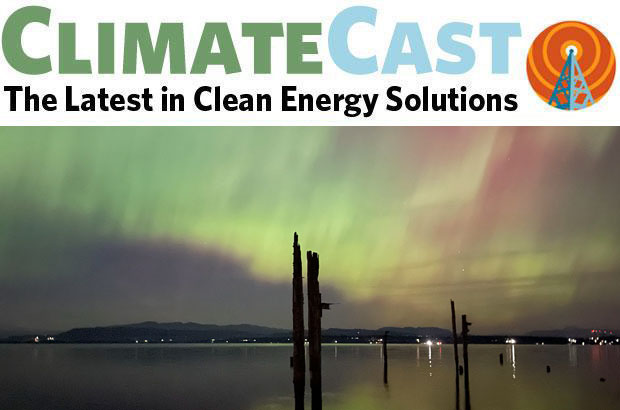A clean energy milestone for the world, but a backlog in the States
For the first time in history, one third of the world’s electricity came from clean, renewable sources. This record high can credit accelerated growth in both wind and solar, with solar clocking its 19th year as the fastest-growing source of electricity generation. Electricity generation is still the world’s biggest source of carbon emissions, and global demand, at a record high in 2023, will continue to rise. Some countries are making huge strides in renewables—Portugal generated nearly 95% of its power from renewables in the first four months of 2024. Private companies are also announcing huge purchases of new clean energy to power their businesses and meet their climate commitments.
Meanwhile in the U.S. a number of indicators show how far away we are from our goals, even with more states passing 100% clean energy goals every year (recently Vermont and Minnesota joined 24 other states and territories committing to such goals). Already the world’s biggest methane gas producer, the U.S. is replacing a majority of its coal-fired power plants with gas; just 23% of the nation’s electricity was generated by renewables in 2023. Beyond just replacing one fossil fuel with another, the U.S. also has a huge backlog in preparing its electricity grid for the clean energy transition. While a huge number of proposed carbon-free projects are waiting to step up to replace fossil-fueled power plants, grid operators and utilities can’t fit all those projects on existing power lines. The Department of Energy's latest efforts endeavor to help alleviate this bottleneck with its announcement for 10 multistate, ultra high capacity electric transmission lines. The new grant program will offer $2 billion in financial support for big new wires projects to support a massive grid expansion the DOE hopes will carry thousands of megawatts of new clean and renewable power.
Who’s responsible? Climate accountability In the courts and state legislatures
Efforts to hold polluters accountable in the fight against climate change were in the news this month across the U.S. In Oregon, there’s a setback for 21 climate activists who sued the federal government arguing its role in climate change violated their constitutional rights. The 9th Circuit Court of Appeals had already dismissed the case in 2020, but an Oregon district judge had allowed an amended lawsuit to move forward to trial. This month the 9th Circuit again dismissed the case, ruling that such broad policy change should be left to Congress and the Executive branch.
There was better news in Vermont, where lawmakers passed a bill designed to stick fossil fuel companies with the check for climate-fueled weather disasters. Amounts owed would be determined based on calculations of the degree to which climate change contributed to extreme weather in Vermont, and how much money those weather disasters cost the state. It’s a novel approach modeled after the federal Superfund program, which requires companies responsible for contamination disasters to pay for remediation or reimburse the federal government for cleanup costs. Michigan Attorney General Dana Nessel also announced last week her intention to sue the oil and gas industry for its role in changing the state’s climate and threatening its environment, infrastructure, health and economy. Michigan becomes just the latest state to sue the fossil fuel industry over climate damages.
PNW rebates aim to make EVs super-affordable
Washington State officials recently announced a $50 million electric vehicle rebate program aimed at expanding access to healthier, climate-friendly vehicle options, either for buying or leasing new or used EVs. The state designed the program to benefit middle-and lower-income households, and will start it later this summer to run through June 2025. According to state officials, qualifying households will have several options for leasing an electric car for less than $100 per month. The new program adds to the current federal and state-run programs incentivizing EV ownership in Washington, where sales of new gas-powered vehicles is set to be completely phased out by 2035.
Oregon residents looking to buy or lease an electric car have a few weeks left to take advantage of the latest extension of the state’s Clean Vehicle Rebate Program, set to expire on June 3. Anyone in the Northwest looking to benefit from these programs should be aware that, under newly confirmed federal restrictions, new EVs manufactured in whole or in part in China are not eligible for some federal tax credits and rebates (Consumer Reports has a handy list of eligible vehicles). The restrictions were designed to reduce U.S. reliance on Chinese technology—an objective which seemingly has as much to do with politics as with data security or support for American industry, and risks slowing U.S. adoption of clean vehicles. Just this week, the Biden administration announced plans to increase tariffs on Chinese technology including EVs and advanced batteries. Meanwhile, Chinese EV automakers are leaving their American competition in the dust—according to a report from Inside EVs—in innovation, range, scale of manufacturing, and affordability.
What we're listening to
Looking to go deeper on climate and intersectionality? Check out these five climate justice podcasts to follow: How to Save a Planet, Drilled, Cooler Earth, Stories from Home and NPR’s Living Downstream.





